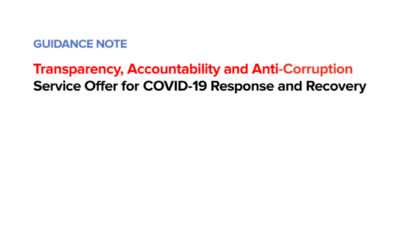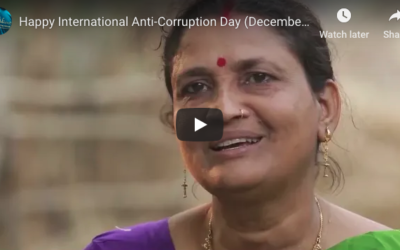21 May 2-14 — Delivering its key mandate of infrastructure development, inclusive development, local content and Information Technology, IT in government, Nigeria’s Federal Ministry of Communications Technology, (FMCT) since inception has been able to chart an increase in the contribution of IT sector to the national Gross Domestic Product, GDP, by unleashing ICT in governance.
To reinforce the commitment of President Goodluck Jonathan’s initiative to improve internal efficiency in government, the FMCT is promoting ICT in Government, by facilitating e-Government, which enhances transparency, efficiency, productivity and citizen engagement.
The Minister of Communications Technology, Mrs. Omobola Johnson in a detailed report, of the FMCT since it began operations in 2011, marshalled out road maps which have been created to help deliver core objectives.
According to the road maps, getting government online initiative was geared at ensuring that government deploys technology as a mechanism to transform the way it operates and enhances the effectiveness of service delivery for the benefit of its citizens.
Government calls centres:
According to Johnson, the FMCT is setting up Government Contact Centres, which would facilitate efficient response to citizen requests through a two-tier response approach.
The Contact Centre will be located in the six geopolitical zones of the country. The centre, she said, was planned to house robust databases as well as accommodate 150 operator seats.
MDA websites:
Before the creation of the FMCT, most MDAs did not have domain names. But in line with its mandate to improve the quality of public service delivery, all websites of Ministries across the federation under the administration of current CT Ministry have been migrated to a standard domain name at ‘.gov.ng’.
“To maintain the relevance and efficiency of these websites, the FMCT has issued web standards and guidelines that ensure uniformity across all MDA websites. The guidelines ensure quality of each website, its relevance and accuracy of information” the Minister said.
Email addresses for civil servants:
Looking forward with zeal to next year of achievements and delivering on its mandate, she informed that a corollary to the implementation of websites was the official email addresses to enhance service delivery and good governance within MDAs.
This development, according to her will also lead to accountability and transparency in official government correspondence.
FG service portal:
The FMCT, as part of its mandate, according to the Minister embarked on initiatives to deploy ICT to drive transparency and efficiency in governance and public service delivery.
This, she said has led to the implementation of two flagship projects, namely the Government Service Portal (GSP) and Government Contact Centre (GCC).
“Government Service Portal (GSP) provides a single window technology access by citizens and other stakeholders to government services being provided by various MDAs” she explained.
It is multi-featured and includes collaborative channels that deliver core content management capabilities.
It also creates single point of entry to Federal Government services, enhance accountability and improve the delivery and quality of public services through technology-enabled civic engagement. The portal transforms government processes to increase public administration efficiency, increase end-user productivity by integrating many different services or data access paths of MDAs, under a consistent presentation standard.
Part of primary objectives of GSP included to mainstream some of the government’s non-sensitive datasets on the portal.
The Phase One of GSP, according to her include automation of 10 government processes from the Federal Ministry of Education; Federal Ministry of Health; Federal Ministry of Agriculture;Federal Ministry of Industry, Trade and Investment and the Federal Ministry of Communication Technology.
Network operating centre/data centre
Designing websites, registering domain names and creating e-mail addresses for government, the Minister said were all front-end activities.
“Ensuring that they remain sustainable is the essence of the Government Data centre, which is the back end activity. This is expected to be completed and fully operational by December 2015. The Government Data centre will be a fully equipped, facility, in Abuja, that is staffed round the clock.
“It is being built with uncompromising standards for security, power supply and environmental controls. Itwill be designed to offer enterprise data hosting services with particular focus on connectivity, redundancy and resilience” she explained.
She further explained that there are additional data centres currently under development as part of the nationwide infrastructure roll out plan, adding that this will track citizen engagement in what services were being accessed mostly online and also host the data generated from online engagement.
“In line with promoting the ‘Whole of Government’ approach in the information age, we are also proud to note that the ‘1Gov.net initiative’ won first place in the UN Public Service Award for 2013 for its approach to providing safe and secure IT infrastructure for the delivery of e-government services.
The 1Gov.net is a shared service platform for raising public sector productivity and efficiency using technology.
“Galaxy Backbone’s 1GOV.net initiative came up for recognition because it represents a creative and exemplary solution that transformed government’s chaotic information technology landscape into a single, coordinated government network in the space of 5 years”, she explained.
Open data initiatives:
According to the Minister, the FMCT has commenced implementation of Open Data Initiative to support the government’s objective of driving innovation, investment and economic growth, by enabling access to government data and by bringing to life the FOI Act.
The initiative, she said is a consultative and inclusive process that would open up high value data sets from across government ministries to citizens, businesses and the rest of the world, for free access to information.
“The commencement of the process makes Nigeria the world’s first Federal Open Data initiative to simultaneously launch inclusive and continuing consultations with both government and non-government communities, to develop the country’s national Open Data implementationplan.
“The Nigeria Federal Open Data Initiative, supported by the World Bank and DFID, aims to highlight the potential efficiency, innovations and public value that can be achieved when government uses technology to open its data” she explained.
According to her, over 50 countries have launched federal level Open Data initiatives. “The impact on economic growth can be trans formative; an analysis by McKinsey indicates that Open Data generates more than $3 trillion of new economic value for the U.S. economy alone.
This story originally appeared in http://www.unpan.org/Regions/Africa/PublicAdministrationNews/tabid/113/mctl/ArticleView/ModuleID/1460/articleId/42024/Default.aspx.




